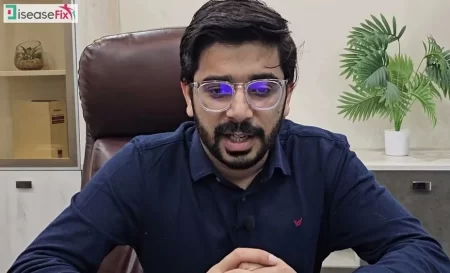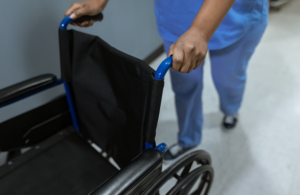What Are Signs and Symptoms of Irritable Bowel Syndrome?
- Updated on: Jun 12, 2024
- 3 min Read
- Published on Apr 19, 2021


Irritable Bowel Syndrome Symptoms (IBS Symptoms)
Irritable bowel syndrome (IBS) affects about 15% of people worldwide. The disease causes changes in frequency or type of your bowel movements and causes lower abdominal pain.
Poor sleep, diet, or other triggers may worsen the symptoms of IBS. However, IBS triggers are different for different persons.
Mostly, people have flare-ups of symptoms that may last a few days to a few weeks. The symptoms then generally improve. But they may not disappear completely.
The symptoms typically become worse after eating food and tend to come and go in cycles.
The most common symptoms of IBS are:
Pain and cramping
Pain in abdomen (stomach) is the most common symptom of IBS. The pain generally occurs in the lower abdomen or in your entire abdomen. But it rarely occurs in the upper abdomen alone. The severity of pain generally decreases after a bowel movement.
Constipation
IBS often causes constipation. It affects almost 50% of people with IBS. Constipation is defined as having fewer than three bowel movements every week.
Constipation in IBS causes abdominal pain that improves with bowel movements. It may also cause a sensation of an incomplete bowel movement.
Diarrhea
Fast bowel transit in IBS can result in a sudden urge to pass stool. Stool in diarrhea is loose and watery and may contain mucus.
Sometimes, both diarrhea and constipation may occur alternatively in IBS.
Feeling that you have not fully emptied
Even after the bowel movement, one may experience a feeling of incomplete bowel movement. If may cause stress.
Bloating and gas
Changed bowel movements cause gas and bloating in your gut. This often becomes very uncomfortable.
Intolerance to certain foods
Sometimes, certain food items can trigger IBS. It is unclear why these foods trigger the symptoms. Food triggers are different for every person but common foods responsible for it are those producing gas in the gut such as lactose and gluten.
Fatigue and lack of good sleep
The intensity of symptoms can cause extreme fatigue and also lack of good sleep.
IBS can also lead to insomnia, which causes having difficulty to fall asleep or waking up frequently. Poor sleep can further lead to worsening of the symptoms the subsequent day.
Anxiety and depression
IBS symptoms can cause mental problems such as stress, anxiety, and depression. Anxiety/depression and IBS are cause and effects of one another, whichever comes first, the other gets worsened.
Anxiety reduction therapy is found to ease the stress and IBS symptoms, in a study.
Other signs and symptoms of IBS
In addition to the key symptoms described above, IBS may cause a number of other issues. These may be:
- Backache
- Feeling of being sick
- Pain during sex (dyspareunia)
- Incontinence
- Laziness
- Urine problems such as waking up frequently to urinate at night
- Psycholopgical problems
What to do if you think you have irritable bowel syndrome
If you have symptoms of IBS that disturb your quality of life, you should visit your doctor, who will help diagnose your condition and provide an effective treatment for the disease.
IBS is diagnosed by continued abdominal pain for at least 6 months that is often relieved by bowel movements. It causes changes in frequency or form of the bowel movements.
Your doctor may refer to a gastroenterologist in case the condition is severe. Gastroenterologists are specialists and trained in digestive diseases. They can help you control the symptoms, and also suggest you about the possible triggers.
You should immediately start avoiding the triggers, particularly food triggers, that you might note may be causing or worsening the symptoms.
When to meet your doctor
You should see your physician if you think your symptoms resemble the typical IBS symptoms discussed above. Your doctor will ask you about your medical history and will examine the symptoms in a discussion. He or she may also ask you undergo certain tests to confirm the diagnosis in case it is not clear and to rule out other options.
If you are undergoing treatment of IBS but feeling depressed or anxious, you should still meet your doctor. You should also contact your doctor if the symptoms persist and you do not notice significant improvement in pain or bowel movements.
If you have other symptoms such as unexplained weight loss, a swelling in your stomach, bleeding along with stool, or signs of anaemia, you should immediately report this to your doctor as this may signal other possible diseases or IBS complications.












